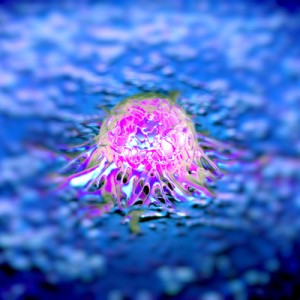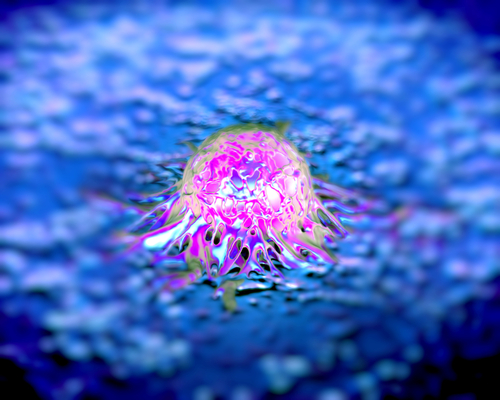 In a new study entitled “A Large-Scale Analysis of Genetic Variants within Putative miRNA Binding Sites in Prostate Cancer,” researchers discovered genetic variations within miRNA binding sites that are associated with increased risk for prostate cancer. The study was published in the journal Cancer Discovery.
In a new study entitled “A Large-Scale Analysis of Genetic Variants within Putative miRNA Binding Sites in Prostate Cancer,” researchers discovered genetic variations within miRNA binding sites that are associated with increased risk for prostate cancer. The study was published in the journal Cancer Discovery.
A group of scientists at the Moffitt Cancer Center participated in a study through the PRACTICAL consortium (short for Prostate Cancer Association Group to Investigate Cancer-Associated Alterations in the Genome) that intended to identify additional genetic variants associated with higher risk of prostate cancer development, as the current known genetic variations (approximately 100) only explain 33 percent of the increase risk in prostate cancer within families.
To this end, the authors performed a large-sale genetic analysis in individuals participating in 23 clinical studies, including in total 22,301 prostate cancer cases and 22,320 normal controls, and focused their genetic analysis on genes affecting miRNA binding (miRSNP). microRNAs are a class of small non-coding RNA molecules that play key roles in regulating gene expression by binding to a specific region (the 3′-untranslated regions, 3′-UTR) in messenger RNAs (mRNAs).
The authors discovered 22 genetic variations in microRNA binding sites associated with increased risk for prostate cancer, with 10 of these mapped within genes linked to prostate cancer for the fist time. Additionally, they were able to distinguish 7 variants that may distinguish aggressive from nonaggressive forms of prostate cancer. The functional significance of the authors’ findings is strengthened by their further results showing that two of the newly identified genetic variants regulated the expression of PSA, a prostate specific antigen (PSA) while the second regulates a gene involved in metabolism. Further investigation will allow disclosing the importance of these variants in disease onset and progression, potentially revealing their role in diagnosis and therapeutics.
Jong Park, Ph.D., associate member and molecular epidemiologist in the Cancer Epidemiology Program at Moffitt and one of the study authors commented in a press release, “MicroRNAs are small molecules that work as ‘master-regulators,’ controlling multiple cancer-related genes by binding regulatory regions of target genes. The hope is that this research may eventually lead to a simple genotyping based blood test that could be used in conjunction with the PSA and DRE tests to aid the medical team and patient in accurately predicting disease risk.”

